Events
Conference/workshop abstracts, books, book chapters
LAST EVENTS 2024

Machine Minds, Bio Solutions:
Redefining Bioprocess & Enzyme Engineering
Artificial intelligence (AI) and machine learning (ML) potential is far from exhausted. AI&ML are seen by many as the next big revolution in the IT sector. In this webinar organized by our partner CLIB, we have learnt how in the fields of enzyme and bioprocess engineering, many methods applying AI are already being developed and successfully implemented. Our partner BSC showed us their part in this revolution, together with 3 more experts in the field. Actually ChatGPT was used to generate the title of the webinar as an example and introduction.

ESOF2024
Our project clustered from the beginning with the other 3 projects in the same EU call. We have so much in common, and we are so much stronger together! A proof of this beneficious union is our participation in ESOF2024, under the title “Biochemistry for a greener world: how enzymes can transform the chemical industry and help create sustainable consumer products”. Accompanied by Dr. Manfred Kircher to add his expertise in bio-economy to our vision, we had a really nice intervention. We also stablished some interesting conversations with people in the audience, such as stakeholders, policy-makers, or academic. Besides, it was a really good opportunity to see each other face-to-face; some of us have known each other from long ago, others have met here for the first time. We want to thank Scienseed (RadicalZ) for their initiative to attend to this forum and the great organization. We plan to keep on working to sum up efforts, keep posted!
2024

Jaeger’s Farewell
On 28th May 2024, the University of Düsseldorf (Heinrich-Heine-Universitaet, Forschungszentrum Jülich, Germany) organized a symposium in honor of Prof. Dr. Karl-Erich Jaeger. He is one of the essential members of FuturEnzyme’s consortium, with more than 40 years of experience in the world of microbial and enzymatic technologies. His retirement is a well deserved step, but we will miss him!
2023
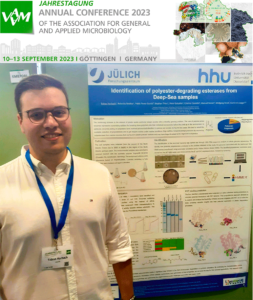 Tobias Horbach:
“Identification of polyester-degrading esterases from deep-sea samples”
Tobias Horbach:
“Identification of polyester-degrading esterases from deep-sea samples”
The first in-person edition of the Annual Conference of the German Association for General and Applied Microbiology after the pandemic break took place in Goettingen, Germany. UDUS FuturEnzyme fellow Tobias Horbach used this opportunity to present his project as collaborative work of FuturEnzyme partners UDUS, UHAM, Bangor and CSIC demonstrating the power of cooperation.
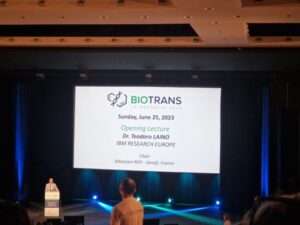 BioTrans 2023
BioTrans 2023
This week has been intense! Laura Fernández, Paula Vidal and Cristina Coscolín have assisted to BioTrans 2023 in La Rochelle (France) where they shared our work in the form of pitch talk, oral communication and poster! So productive!
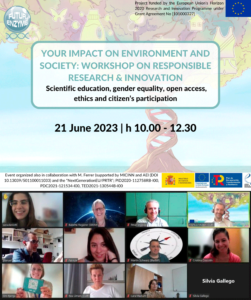 CSIC, CLIB, ITB: Your impact on environment and society: Workshop on Responsible Research & Innovation
CSIC, CLIB, ITB: Your impact on environment and society: Workshop on Responsible Research & Innovation
Responsible Research & Innovation (RRI) principles are a must in all current and future investigations. To be sure that we squeeze at the maximum our results, we have to be sure that we are working in the right direction and in line with the best practices. Key is to never lose sight of the real demanded needs for society and environment. With these priorities in mind, we set up a interactive online workshop in which to deepen in RRI and apply its principles to practical examples. Experts in the matter were involved and leading different groups, which worked together to share personal views and examples. Different aspects were covered in the frame of RRI principles. We want to thank the experts, Babette Regierer, Petar Vrgovic, Silvia Gallego and Luisa Crisigiovanni, and all the participants; we enjoyed a nice discussion, different views and experiences, and a really enriching time!
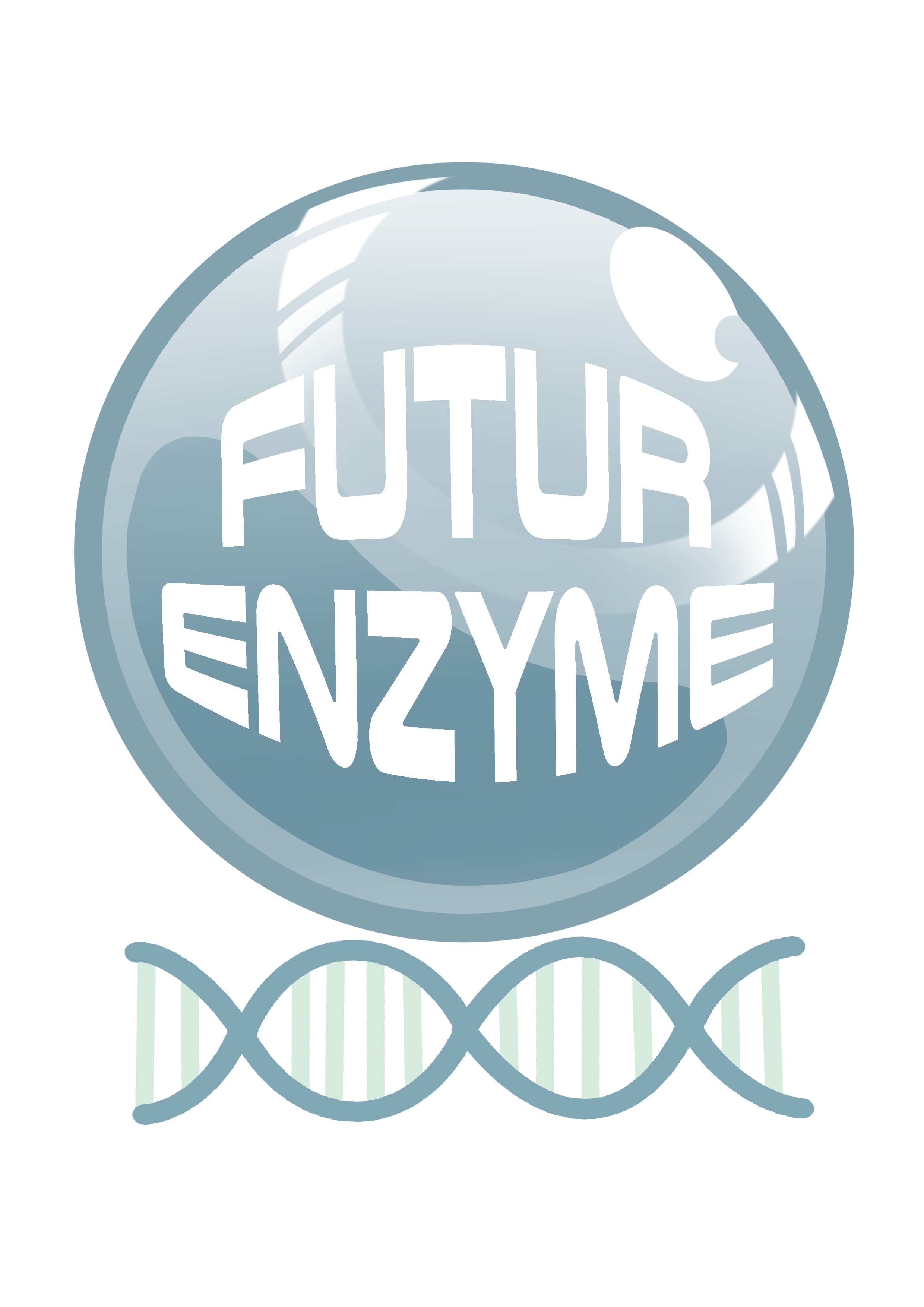

 Webinar Managing data & resources: examples in research projects
Webinar Managing data & resources: examples in research projects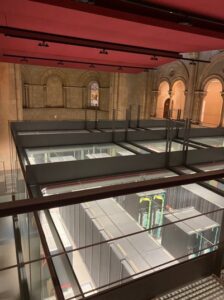 BSC: Workshop on Computational Enzyme Bioprospecting and Engineering
BSC: Workshop on Computational Enzyme Bioprospecting and Engineering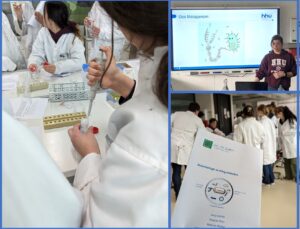 UDUS: Discover biotechnology your everyday life /An expedition to novel enzymes
UDUS: Discover biotechnology your everyday life /An expedition to novel enzymes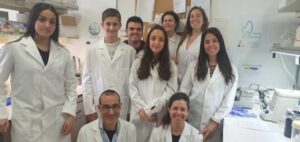 CSIC: 4ESO+company training
CSIC: 4ESO+company training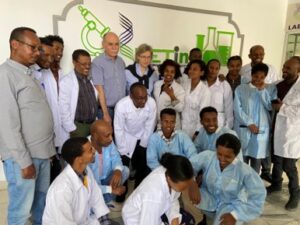 UHAM: course “Biotechnology and Phages”
UHAM: course “Biotechnology and Phages”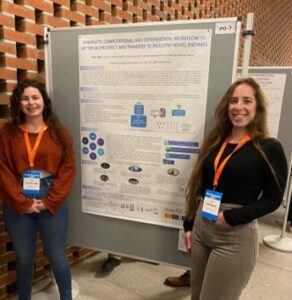 CSIC: Novel Enzymes 2023
CSIC: Novel Enzymes 2023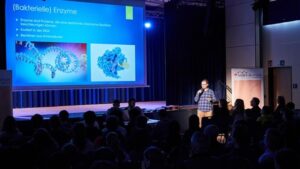 UHAM: Science Café at a MINT school
UHAM: Science Café at a MINT school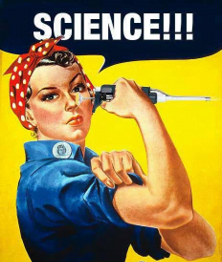 CSIC: 11F, International Day of Women and Girls in Science 2023
CSIC: 11F, International Day of Women and Girls in Science 2023 Bangor «New enzymes and biomolecules from extremophiles and metagenomes»
Bangor «New enzymes and biomolecules from extremophiles and metagenomes»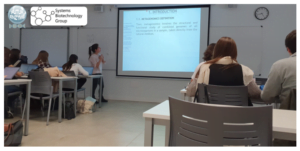 Cristina Coscolín:
“Metagenomics: a useful tool for the discovery of novel enzymes with biotechnological applications”
Cristina Coscolín:
“Metagenomics: a useful tool for the discovery of novel enzymes with biotechnological applications” FuturEnzyme CLIB forum: «Fantastic enzymes: Where and how to find them»
FuturEnzyme CLIB forum: «Fantastic enzymes: Where and how to find them»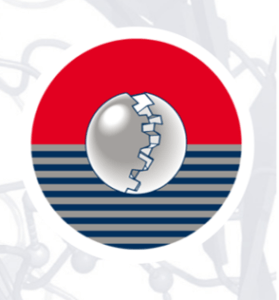 Rebecka Molitor:
“Novel polyester hydrolases from marine Halopseudomnas – A comparative study of a naturally evolved variant library of PET-active biocatalysts”
Rebecka Molitor:
“Novel polyester hydrolases from marine Halopseudomnas – A comparative study of a naturally evolved variant library of PET-active biocatalysts”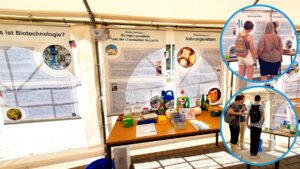 Fabienne Hilgers and Stephan Thies: Tag der Neugier (“Day of curiosity”)
Fabienne Hilgers and Stephan Thies: Tag der Neugier (“Day of curiosity”)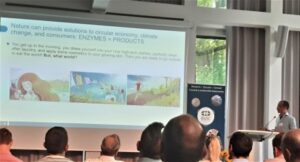 Manuel Ferrer:
“Bioeconomy and climate change mitigation: new enzymes wanted”
Manuel Ferrer:
“Bioeconomy and climate change mitigation: new enzymes wanted”
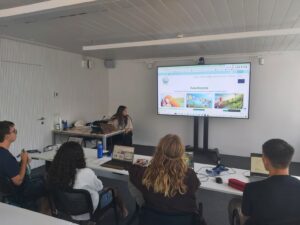 BSC: “Barcelona International Youth Science Challenge (BIYSC)”
BSC: “Barcelona International Youth Science Challenge (BIYSC)”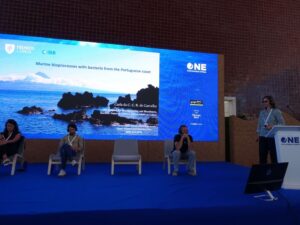 IST-ID: “Marine bioprocesses with bacteria from the Portuguese coast”
IST-ID: “Marine bioprocesses with bacteria from the Portuguese coast” Rebecka Molitor:
“Marine resources for polyester degrading enzyme”
Rebecka Molitor:
“Marine resources for polyester degrading enzyme”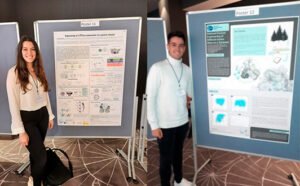 BSC: “Biocatalysis for the Biological Transformation of Polymer Science”
BSC: “Biocatalysis for the Biological Transformation of Polymer Science”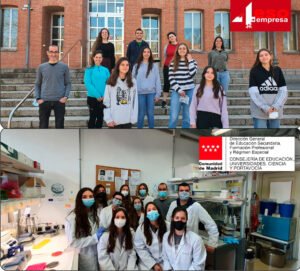 CSIC: «4ºESO+company program»
CSIC: «4ºESO+company program»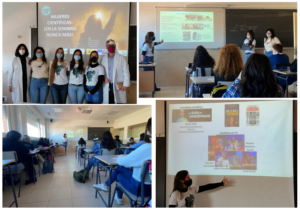 CSIC: «International Day of Women and Girls in Science»
CSIC: «International Day of Women and Girls in Science»
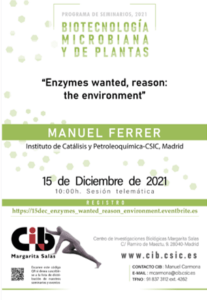 CSIC: “Enzymes wanted, reason: the environment”
CSIC: “Enzymes wanted, reason: the environment”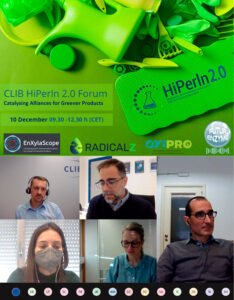 CLIB, CSIC, SCHOELLER: «Catalysing Alliances for Greener Products»
CLIB, CSIC, SCHOELLER: «Catalysing Alliances for Greener Products»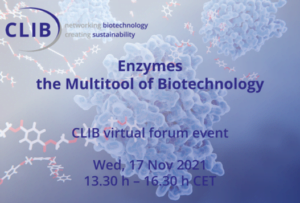 CLIB, INOFEA: “Enzymes – the Multitool of Biotechnology”
CLIB, INOFEA: “Enzymes – the Multitool of Biotechnology”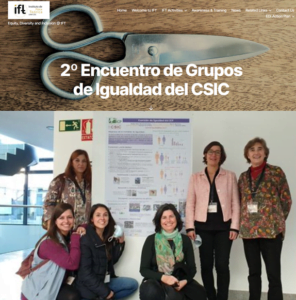 Cristina Coscolín and Patricia Molina “Equality at CSIC”
Cristina Coscolín and Patricia Molina “Equality at CSIC”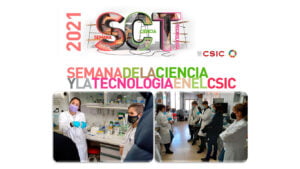 Cristina Coscolín, Laura Fernández and Patricia Molina “Science Week”.
Cristina Coscolín, Laura Fernández and Patricia Molina “Science Week”.
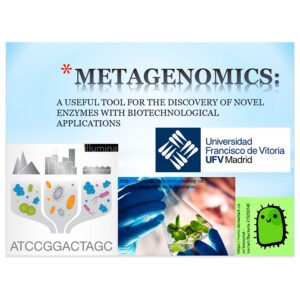 Cristina Coscolín : “Metagenomics: a useful tool for the discovery of new enzymes with biotechnological applications».
Cristina Coscolín : “Metagenomics: a useful tool for the discovery of new enzymes with biotechnological applications».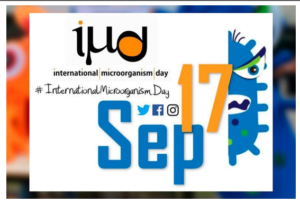 Carla C.C.R. de Carvalho “Using marine bacteria to solve human problems”
Carla C.C.R. de Carvalho “Using marine bacteria to solve human problems” Karl-Erich Jaeger: “Novel biocatalysts for biotechnology”
Karl-Erich Jaeger: “Novel biocatalysts for biotechnology”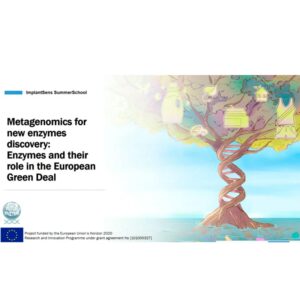 Manuel Ferrer: Metagenomics for new enzyme discovery: Enzymes and their role in the European Green deal
Manuel Ferrer: Metagenomics for new enzyme discovery: Enzymes and their role in the European Green deal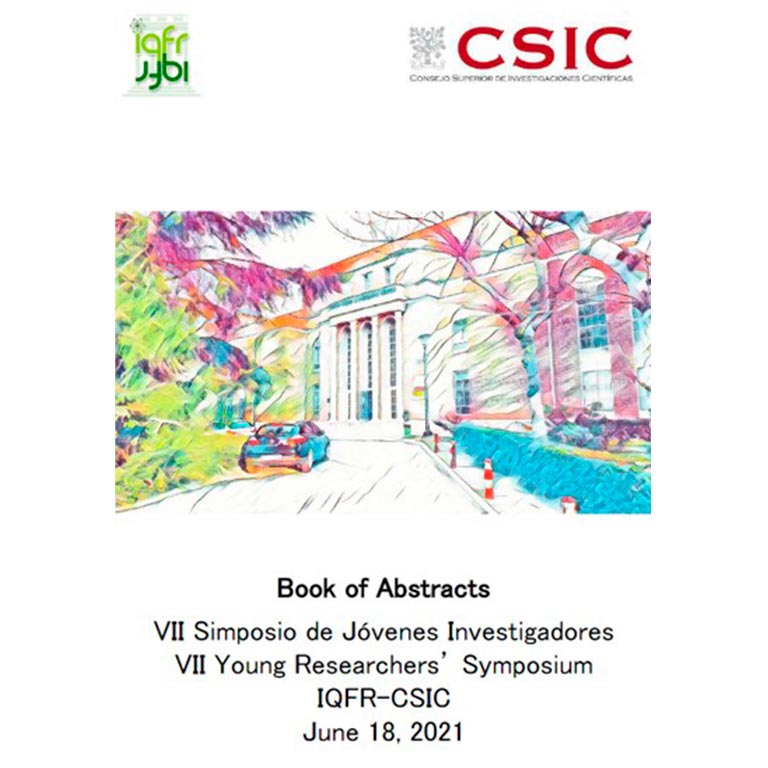 Isabel Cea: “Crystallography gives the key to confer stereospecificity to a promiscuous esterase”
Isabel Cea: “Crystallography gives the key to confer stereospecificity to a promiscuous esterase” Manuel Ferrer: “Nano for the Environment”
Manuel Ferrer: “Nano for the Environment”